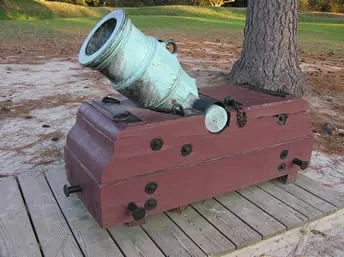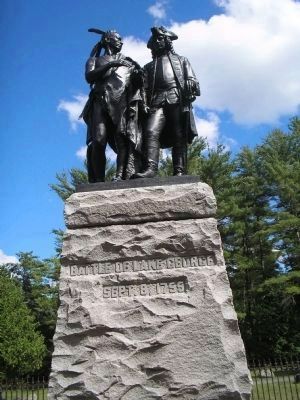“Praising and glorying in Lieutenant Jonathan Folsom”
In July 1898, The Spirit of ’76 magazine devoted much of its front page to a poem by Mary M[elissa]. Durgin Gray (1848–1939).
The poem was illustrated by a photo of Betsey Folsom Durgin, as shown here. She was the poet’s grandmother and herself the granddaughter of the poem’s subject.
The phrase “To enter the line” clearly places this composition during the period when it was new and fashionable to join the Daughters of the American Revolution and Sons of the American Revolution. Gray made clear she was eligible for membership (“Another great grandfather gave me a right”).
However, the last stanza takes an amusing swerve into how Jonathan Folsom is not listed as a lieutenant on any rolls from the Revolutionary War. How embarrassed Gray’s grandmother might be to learn her grandfather was a mere private in 1777!
Except he wasn’t. The Jonathan Folsom in the poem had a son of the same name, much more eligible for emergency militia service against the Burgoyne campaign than a one-legged, fiftysomething retired lieutenant. Indeed, that younger Jonathan Folsom was Betsey Folsom Durgin’s father, so she probably knew about his short Revolutionary service.
Lt. Jonathan Folsom was unquestionably an officer in one of the North American colonial wars. The General Society of Colonial Wars had been founded in 1893, making some of his descendants eligible for membership—but the National Society Daughters of Colonial Wars wouldn’t arise until 1917.
On her death, Mary M. Durgin Gray was described by her daughters as an “author of children’s stories.” I’ve found two poems attached to that name in the Granite Monthly in 1900 as well as a sketch in the Boston Home Journal. Those magazines also published some items credited to Mary M. Gray in a similar style, so I bet those are hers, too. But I can’t find any published stories for children.
The poem was illustrated by a photo of Betsey Folsom Durgin, as shown here. She was the poet’s grandmother and herself the granddaughter of the poem’s subject.
Lieutenant Jonathan Folsom.Most of this poem is a retelling of the family lore about Jonathan Folsom, as discussed yesterday—and a depiction of how that story was passed down and embedded in younger generations’ minds.
GRANDMOTHER dear, in the picture there,
With snowy cap and silvery hair,
Delighted to talk of the days of yore
And the part her honored grandsire bore,
First, in the great battles under the King,
And subsequently in the following
Of Washington and the heroes bold
Of the Revolution, and ever told
With a touch of pride her grandsire’s name,
Lingeringing [sic] slightly over the same,
Lieut. Jonathan Folsom.
Grandmother, in truth, was really quite small
When he died, at her father’s, his looks to recall;
Her big brother Isaac had doubtless instilled
In her mind the facts which their grandsire drilled
Into his; and her stories, eagerly learned
By me, (while my spirit with strong ardor burned)
Familiar as even the Bible tales grew;
I felt as if I had known Jonathan, too.
In school, the word lieutenant being given
To define, I, by artless child-logic driven,
Made answer, Jonathan Folsom.
His brother Nathaniel, more widely known,
To rank of Colonel rose under the Crown;
In General Congress, with Washington
And others, fame for sagacity won;
Then, after Lexington’s bloody affray—
Became Major General early in May.
Full due for his bravery Grandmother paid
Nathaniel, and praise, yet greater stress laid
On her grandsire’s service at famed Bunker Hill;
A volunteer, crippled—yet calling him still
“Lieutenant Jonathan Folsom.”
That Bunker Hill service!—Grandmother thrilled
My soul as she talked of the brave soldiers killed
Around him—her one-legged grandsire brave—
As he toiled in the fray, his loved country to save.
How, firing the mortar, of which he had charge,
Sending bombs on the deck of a man-of-war large
In the harbor, he caused her at last to retire.
(Had they known the projector, how great were their ire.)
The Stamp Act’s repealing, some nine years before
He had sought to announce with an old cannon’s roar;
It burst, and one leg was forever despoiled;
Yet think you his work for his country was foiled,
Lieutenant Jonathan Folsom’s?
Do you think that a man who, when scarce twenty-two
(Commissioned Lieutenant) the French to subdue,
Engaged in the siege of Louisburg when
The untutored troops against disciplined men
Small chance had of winning, (yet they did.
Though their work ’neath the boast of the Red-coats was hid);
Do you think such a man could abide in the rear
When he saw his old comrades gathering near,
When those Louisburg drums (after Lexington’s fray)
Were used in the battle on Bunker Hill day;
When Gridley who Pepperell’s batteries laid
Likewise the intrenchments at Bunker Hill made,
Lieutenant Jonathan Folsom?
At Duquesne, Crown Point and Niagara, you
See the War Rolls record him and Nathaniel, too.
Historians tell how the Exeter men
The French force defeated again and again.
Brave Jonathan, shot through the shoulder, yet bore
His part in the capture of prisoners and store;
Therefore, when Nathaniel was given command
Of the troops in this region, could Jonathan stand
Inactive because he was minus a leg?
Ah no, he had gotten a fine wooden “peg,”
And he strayed into the battle, enlisted or no,
Performing his part in routing the foe;
Lieutenant Jonathan Folsom.
Years have passed—all these patriots lie in their graves;
The banner of Liberty over them waves;
For Freedom they fought and in Freedom they died;
The country they gave us is glorious and wide;
Their memory many essay to revive;
Societies vieing in keeping alive
Accounts of their deeds and the fields where they fought,
And I, in the wave of enthusiasm caught,
The record of Jonathan hastened to find,
Because, I confess, it was more to my mind
To enter the line with a title, though slight;
(Another great grandfather gave me a right.)
He with Stark, as a private, to Bennington went;
But in Jonathan’s name my papers I sent;
What though as a private I found him enrolled?
By epaulets only is bravery told?
His previous record and service proclaim
The man, and I quote, “What’s there in a name?”
But Grandmother, low in her far-away grave?
Did she know that her hero, her grandsire brave,
As “Jonathan, private,” recorded had been
All those years she was praising and glorying in
Lieutenant Jonathan Folsom?
The phrase “To enter the line” clearly places this composition during the period when it was new and fashionable to join the Daughters of the American Revolution and Sons of the American Revolution. Gray made clear she was eligible for membership (“Another great grandfather gave me a right”).
However, the last stanza takes an amusing swerve into how Jonathan Folsom is not listed as a lieutenant on any rolls from the Revolutionary War. How embarrassed Gray’s grandmother might be to learn her grandfather was a mere private in 1777!
Except he wasn’t. The Jonathan Folsom in the poem had a son of the same name, much more eligible for emergency militia service against the Burgoyne campaign than a one-legged, fiftysomething retired lieutenant. Indeed, that younger Jonathan Folsom was Betsey Folsom Durgin’s father, so she probably knew about his short Revolutionary service.
Lt. Jonathan Folsom was unquestionably an officer in one of the North American colonial wars. The General Society of Colonial Wars had been founded in 1893, making some of his descendants eligible for membership—but the National Society Daughters of Colonial Wars wouldn’t arise until 1917.
On her death, Mary M. Durgin Gray was described by her daughters as an “author of children’s stories.” I’ve found two poems attached to that name in the Granite Monthly in 1900 as well as a sketch in the Boston Home Journal. Those magazines also published some items credited to Mary M. Gray in a similar style, so I bet those are hers, too. But I can’t find any published stories for children.




